Introduction: Exploring the Ancient Mushroom with Modern Questions
Reishi mushroom, also known as Ganoderma lucidum or Lingzhi in traditional Chinese medicine, has long been revered for its supposed healing properties, cognitive benefits, and calming effects. Today, as nootropic mushrooms become increasingly popular in wellness circles and cognitive enhancement research, an important question is gaining traction: does reishi make you sleepy, or can it actually help enhance mental clarity and focus? While modern science has begun to uncover fascinating properties within this ancient fungus, the answer is more nuanced than a simple yes or no. This article explores the deep intersection of reishi mushroom’s historical use, current scientific understanding, and practical implications for memory, sleep, and overall mental function.
You may also like: The Ultimate Guide to the Best Nootropic Mushrooms for Memory and Cognitive Enhancement
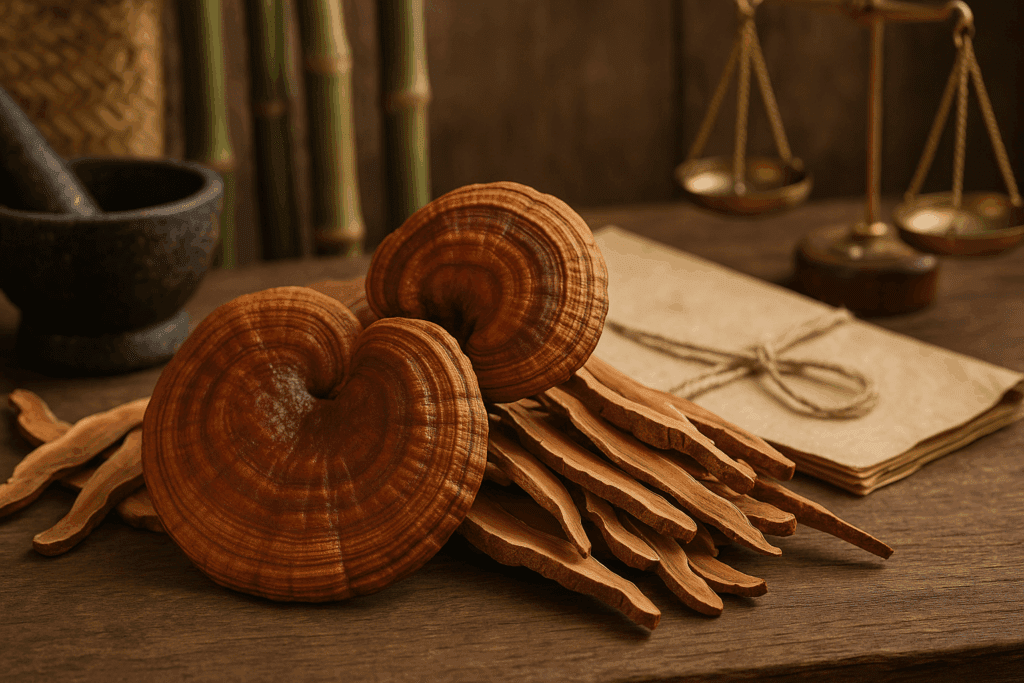
What Is Reishi Mushroom and Why Is It So Revered?
Reishi mushroom is a polypore fungus that grows primarily on hardwood trees, notably oaks, in hot and humid locations. Known by various names including Lingzhi mushroom extract, red reishi mushroom powder, and Ganoderma, it has been used for thousands of years in traditional Eastern practices, particularly in Chinese, Japanese, and Korean medicine. It was once reserved for royalty due to its rarity and believed life-enhancing powers. Rich in bioactive compounds such as triterpenoids, polysaccharides, and peptidoglycans, reishi has been studied for its effects on immunity, inflammation, and neuroprotection.
Particularly in traditional Chinese medicine, reishi was viewed as a spiritual herb. It was believed to promote calmness, nourish the heart, and support longevity. Today, reishi supplements come in many forms, from red reishi powder to reishi mushroom capsules, appealing to modern consumers seeking natural alternatives to pharmaceuticals for stress, sleep, and mental performance.

Does Reishi Make You Sleepy? Breaking Down the Mechanism
One of the most common questions among new users is, does reishi make you sleepy? The answer is multifaceted. Reishi is not a sedative in the traditional pharmacological sense, but it has adaptogenic and anxiolytic effects that may indirectly promote better sleep. Adaptogens are substances that help the body adapt to stress and maintain balance, or homeostasis. Reishi’s calming influence on the nervous system can ease anxiety and reduce overactive mental chatter, which often interferes with sleep initiation and quality.
The mushroom’s impact on the parasympathetic nervous system—which governs rest and digestion—has been linked to improved relaxation and sleep latency. Several animal studies have found that reishi extracts increase non-REM sleep and reduce sleep latency in rats. While more human clinical studies are needed, early evidence supports the idea that reishi promotes restorative sleep through its modulation of neurotransmitters like GABA and serotonin.
Interestingly, many users report not feeling drowsy immediately after taking reishi, but instead noticing better sleep quality over time. Unlike conventional sleep aids, it does not sedate or knock the user out but gradually improves the body’s ability to regulate its sleep-wake cycles. Thus, the perception that reishi makes you sleepy is more about its cumulative effect on stress and anxiety reduction than direct drowsiness.

Does Reishi Make You Sleepy or Sharpen Your Mind? Unpacking the Dual Effect
This paradox lies at the heart of reishi’s mystique. So, does reishi make you sleepy or sharpen your mind? The answer seems to be both, depending on the context and user. While its anxiolytic properties encourage better sleep at night, reishi may also enhance mental clarity during the day by reducing cognitive fatigue and stress-related fog.
One theory suggests that reishi’s adaptogenic qualities restore balance to the HPA (hypothalamic-pituitary-adrenal) axis, the body’s central stress response system. Chronic stress overactivates this axis, leading to poor sleep, irritability, and impaired cognitive function. By modulating this stress response, reishi supports both a calm state conducive to sleep and a focused state conducive to productivity.
In cognitive enhancement circles, reishi is sometimes paired with stimulating nootropics to create a balanced “stack” that boosts alertness without inducing anxiety. While reishi on its own is not a stimulant, its anti-fatigue effects may make users feel more mentally present and less overwhelmed. This dual action—improved sleep and clearer cognition—is why reishi is increasingly recognized as a cornerstone among nootropic mushrooms.
Reishi Mushroom Benefits Beyond Sleep and Focus
Reishi mushroom offers an impressive array of benefits that extend beyond just sleep and memory. For starters, reishi mushroom benefits include powerful antioxidant properties that combat oxidative stress, a major contributor to cognitive decline and neurodegeneration. Regular intake of reishi powder or reishi mushroom capsules has been linked to enhanced immune function, reduced inflammation, and improved liver health.
One of the standout features of reishi is its beta-glucans, a type of polysaccharide known for immunomodulatory activity. These compounds stimulate white blood cell activity and have shown promise in supporting the body during chemotherapy, autoimmune disorders, and viral infections. Furthermore, triterpenes found in red reishi powder may help lower blood pressure, improve cholesterol levels, and support cardiovascular function.
In Eastern medicine, reishi is also considered a harmonizer—a substance that supports systemic balance. Does Eastern medicine use reishi mushrooms for mental health? Absolutely. It has traditionally been prescribed for mood disorders, stress-induced insomnia, and fatigue. Its liver-protective and anti-inflammatory effects have even led researchers to explore its role in conditions like metabolic syndrome and liver toxicity.
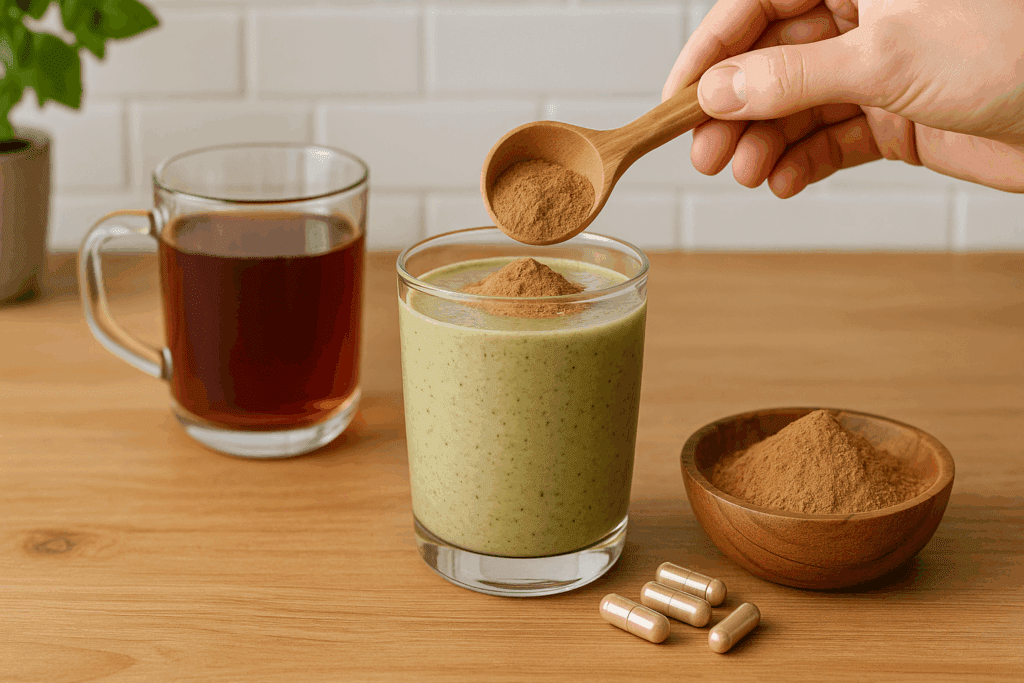
How to Use Reishi Mushroom Powder for Optimal Results
Understanding how to use reishi mushroom powder effectively is crucial for reaping its benefits. Reishi can be consumed in various forms including teas, tinctures, capsules, or as a dried powder added to smoothies or soups. The best way to take reishi mushroom often depends on individual preferences and health goals. For sleep enhancement, many users prefer taking reishi in the evening, often in the form of red reishi tea, which offers calming benefits without next-day grogginess.
For those aiming to improve cognitive function, taking reishi earlier in the day might be beneficial, especially when combined with other nootropics. It is important to note that reishi is not a quick-fix supplement. Its benefits accumulate over time, usually after several weeks of consistent use. The slow-building nature of adaptogens means that patience and consistency are key.
Red reishi tea benefits go beyond relaxation. The tea contains water-soluble polysaccharides that support immune modulation and gut health. When brewed properly, the decoction delivers a potent dose of active compounds. However, be warned: reishi has a bitter taste, which is why many prefer encapsulated or powdered forms to avoid the unpalatable flavor.
What Is Reishi Good For? The Broad Spectrum of Health Benefits
When evaluating what reishi is good for, it’s clear the mushroom offers systemic support that touches nearly every organ system. Reishi mushroom for anxiety relief is perhaps its most well-known modern application. By lowering cortisol levels and supporting GABAergic activity, it helps the body maintain emotional balance.
Another area of interest is the potential use of reishi mushroom for liver detoxification. While the liver naturally detoxifies itself, certain compounds in reishi have shown promise in supporting this process and protecting against liver toxicity. Research on reishi mushroom liver toxicity has generally found the mushroom to be safe in appropriate dosages, though it may interact with certain medications, which we will explore in depth.
Cardiovascular health, metabolic regulation, and immune function are also key areas where reishi shines. From lowering cholesterol to reducing blood glucose levels, the mushroom’s impact on chronic disease management is becoming increasingly recognized. Its anti-inflammatory effects are particularly relevant to modern lifestyles that involve high stress, poor diet, and environmental pollutants.
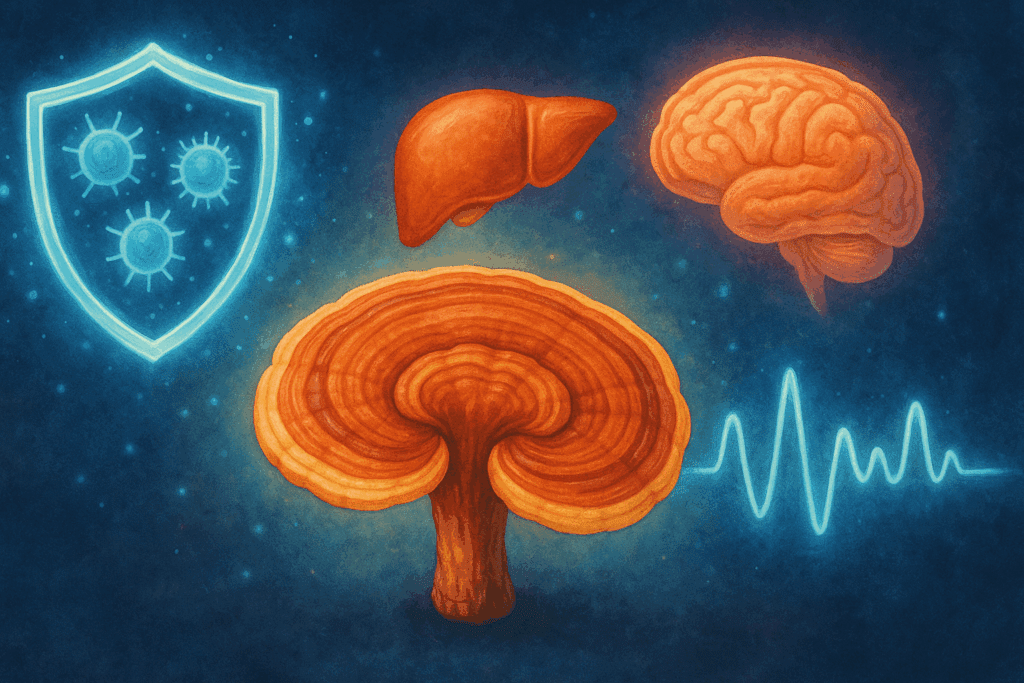
Does Reishi Mushroom Interact with Medications? What You Need to Know
As reishi’s popularity grows, so does the importance of understanding its interaction with pharmaceuticals. Does reishi mushroom interact with medications? The answer is yes, and caution should be exercised. Reishi’s anticoagulant properties can interfere with blood thinners like warfarin, potentially increasing the risk of bleeding. It may also affect blood pressure and blood sugar medications, necessitating close monitoring.
Additionally, some evidence suggests reishi might modulate the immune system, which could complicate treatment for autoimmune diseases or those undergoing immunosuppressive therapy. Always consult a healthcare provider before combining reishi with prescription drugs. Individuals taking medications for diabetes, hypertension, or clotting disorders should be especially vigilant.
Despite its generally favorable safety profile, reishi is not without risk. Some users report mild side effects like upset stomach, dizziness, or skin rashes. These may be signs of a reishi mushroom allergy, which, while rare, should be taken seriously. Monitoring for any adverse reactions is essential, particularly in the first weeks of use.
Can You Take Too Many Mushroom Supplements? Understanding Dosage and Limits
The growing trend of “stacking” mushroom supplements raises a critical question: can you take too many mushroom supplements? While mushrooms like reishi are considered safe in moderate amounts, overuse may lead to unwanted effects. Excessive intake has been associated with liver enzyme elevation and gastrointestinal discomfort.
How much reishi mushroom per day is optimal? Most studies suggest a dose range of 1.5 to 9 grams of dried mushroom extract per day, depending on the intended use and individual tolerance. For powdered forms, starting with 1 to 2 grams daily is generally well tolerated. It’s advisable to start low and gradually increase as your body adjusts.
Balancing multiple nootropic mushrooms like lion’s mane, cordyceps, and reishi requires attention to dosage and synergy. While each mushroom offers unique benefits, they can also amplify each other’s effects—both good and bad. Overdoing it may strain the liver or lead to hormonal imbalance. Therefore, using mushroom supplements under the guidance of a qualified practitioner ensures safety and efficacy.
Red Reishi Powder vs. Reishi Mushroom Capsules: Which Is Better?
Consumers often face the dilemma of choosing between red reishi powder and reishi mushroom capsules. Both offer benefits, but the best form depends on lifestyle and health goals. Red reishi powder is versatile and cost-effective, making it ideal for teas or smoothies. Its raw, unprocessed form may contain a broader spectrum of bioactive compounds.
Reishi mushroom capsules, on the other hand, offer convenience and dosage accuracy. They are ideal for individuals with busy schedules or those who dislike reishi’s bitter taste. Capsules often contain standardized extracts, ensuring a consistent amount of triterpenes and polysaccharides. This standardization is particularly important when targeting specific health concerns.
Ultimately, the best way to take reishi mushroom is the one that fits seamlessly into your routine and supports your goals. Some users rotate between forms or combine them to harness full-spectrum benefits. Understanding how to use reishi mushroom powder alongside capsules can offer the best of both worlds.
Do Reishi Mushrooms Make You Trip? Debunking the Psychedelic Myth
Despite their exotic appearance, reishi mushrooms are not psychedelic. So, do reishi mushrooms make you trip? The answer is a definitive no. Unlike psilocybin-containing mushrooms, reishi does not alter perception, cause hallucinations, or impact serotonin receptors in a way that produces psychedelic effects.
The misconception likely arises from reishi’s historical association with spiritual practices. In Daoist tradition, it was considered a shen tonic, believed to enhance spiritual awareness and mental clarity. However, these effects are subtle and should not be confused with the vivid sensory distortions of psychedelic substances.
For individuals seeking natural mental enhancement without the risks or legal concerns of psychedelics, reishi offers a safe, non-psychoactive alternative. Its mind-sharpening effects are more about reducing mental fog and enhancing emotional resilience than inducing altered states.
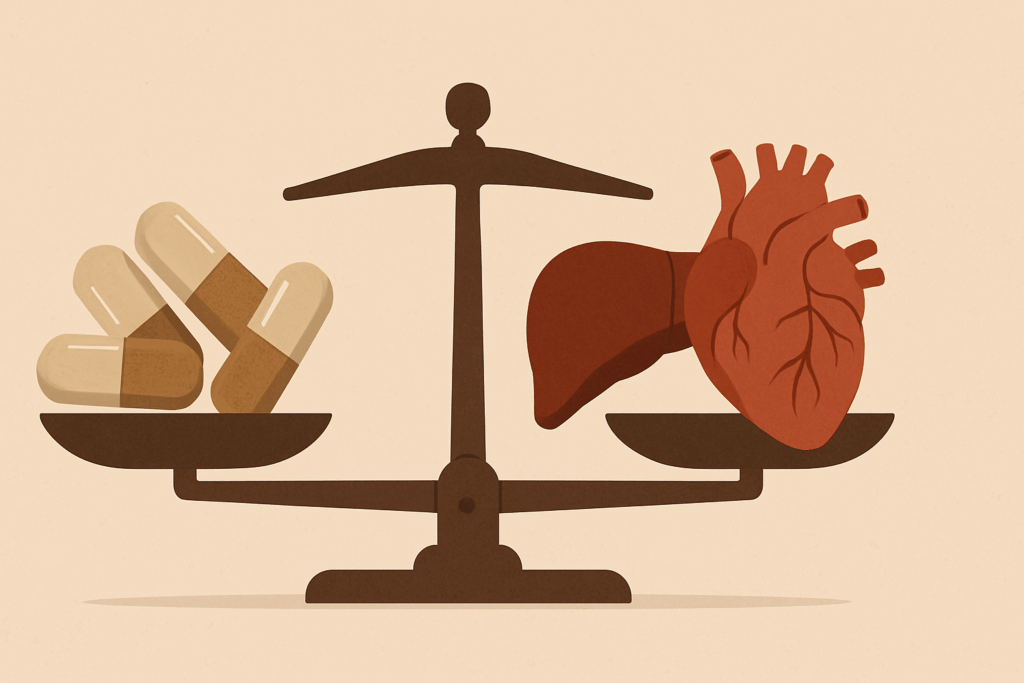
Can You Eat Reishi Mushrooms Raw? The Importance of Preparation
While reishi mushrooms are technically edible, can you eat reishi mushrooms raw? Not quite. In their natural state, reishi mushrooms are tough, woody, and bitter. Eating them raw would be both unpleasant and difficult to digest. Traditional preparation methods involve boiling slices of the mushroom for extended periods to extract its beneficial compounds.
Modern options like lingzhi mushroom extract and reishi powder make it easier to consume the mushroom in a bioavailable form. These extracts are often concentrated and standardized, providing a higher potency than raw mushrooms. Moreover, reishi’s chitin-rich cell walls must be broken down through heat or alcohol extraction to release their therapeutic components.
Choosing the right preparation method enhances the mushroom’s bioavailability and ensures maximum benefit. Whether in the form of red reishi tea, tincture, or capsules, proper extraction is key to reishi’s effectiveness. Avoiding raw consumption not only improves taste but also safety and efficacy.
Is Reishi Safe for Everyone? Considerations for Long-Term Use
Is reishi mushroom safe for long-term use? For most healthy adults, the answer is yes—with some caveats. Studies indicate that reishi is generally well tolerated over several months, with minimal side effects. However, the risk of reishi mushroom allergy or adverse drug interactions increases with prolonged use or high doses.
As a rule of thumb, periodic breaks and dosage reassessment can help prevent buildup or tolerance. Those with compromised immunity, liver conditions, or who are pregnant or breastfeeding should consult a healthcare provider before incorporating reishi into their regimen. Individual differences in metabolism, genetics, and pre-existing conditions all influence how a person might respond to prolonged use.
Additionally, sourcing high-quality reishi supplements from reputable brands ensures that you avoid contaminants or adulterated products. Look for third-party testing and clear labeling of active compounds. Responsible use, combined with medical guidance, maximizes reishi’s long-term benefits while minimizing risks.
Reishi in Clinical Research: What Science Says About Its Cognitive Effects
Modern clinical studies are starting to validate what traditional medicine has long claimed about reishi mushroom. Clinical research, although still in its early stages, has shown promising effects of reishi on both mental performance and neuroprotection. In controlled studies involving animal models and human subjects, Ganoderma lucidum has demonstrated potential in improving memory retention, reducing mental fatigue, and enhancing neuroplasticity. While the mechanisms are not yet fully understood, researchers suggest that reishi’s high triterpenoid and polysaccharide content plays a central role in reducing oxidative damage and inflammation in brain tissues.
One of the landmark areas of research includes reishi’s influence on hippocampal function. The hippocampus is the brain’s center for memory and learning, and studies have observed that reishi extracts can promote hippocampal neurogenesis. This suggests that reishi may be useful for mitigating age-related cognitive decline and conditions like mild cognitive impairment. Furthermore, its antioxidant profile has been shown to protect neurons from beta-amyloid plaques, which are often linked to Alzheimer’s disease. While these findings are still preliminary, they point to reishi’s potential not just as a sleep aid, but as a true cognitive enhancer.
Even more intriguing is reishi’s impact on neurotransmitter systems. Studies have highlighted that reishi may influence serotonin and dopamine levels, both of which are crucial for mood regulation and executive function. Unlike pharmaceutical stimulants that often lead to side effects or tolerance, reishi’s modulating effects appear to support neurotransmitter balance without causing overstimulation or withdrawal symptoms. This unique action further blurs the line between whether reishi makes you sleepy or sharpens your mind, as it appears to support both ends of the spectrum by enhancing overall mental homeostasis.
How Much Reishi Per Day? Navigating Doses for Sleep and Mental Clarity
Understanding how much reishi per day is optimal depends greatly on individual goals and physiological responses. For those seeking better sleep, doses ranging from 1.5 to 3 grams of dried extract per day are commonly used in clinical settings and herbal traditions. These doses are typically administered in the evening, allowing the calming effects of reishi to prime the body for restful sleep. Reishi tea, made from red reishi powder or slices, is a popular bedtime ritual that aligns well with this dosing strategy.
For cognitive support, the timing and form of reishi supplementation can differ. Morning or midday doses, often delivered in capsule or tincture form, are believed to promote a clear and focused state of mind. Doses in the range of 2 to 5 grams may be more appropriate for users targeting mental clarity, depending on body weight and tolerance. Some people combine reishi with other nootropic ingredients, such as L-theanine or lion’s mane, to create a synergistic effect that enhances both relaxation and alertness.
While reishi is generally safe, exceeding recommended dosages without professional supervision can lead to diminishing returns or mild side effects such as digestive discomfort. That said, therapeutic reishi mushroom doses have been administered in research up to 9 grams daily for certain health conditions without serious adverse effects. However, such high doses are not typically necessary for most users and should be approached cautiously. Personalized dosing, ideally guided by a healthcare provider, ensures that reishi can be both safe and effective whether used for sleep, cognitive enhancement, or overall wellness.
The Legacy of Reishi in Traditional Chinese Medicine and Its Modern Revival
The roots of reishi mushroom use trace back more than 2,000 years, where it held a prominent place in the pharmacopeia of traditional Chinese medicine (TCM). Revered as the “mushroom of immortality,” reishi was traditionally used to nourish the heart, calm the spirit, and tonify the Qi—the vital life force in Eastern philosophy. Unlike Western medicine, which often targets symptoms, TCM takes a holistic approach. Reishi was not prescribed merely for insomnia or poor concentration; it was recommended to restore balance across the body and mind.
In TCM theory, reishi supports the Shen, or spirit, which resides in the heart. Disorders of the Shen manifest as anxiety, restlessness, and insomnia, all of which reishi was thought to soothe. Its bitter flavor and neutral energetic property made it ideal for draining heat and clearing toxins, aligning with its contemporary classification as an adaptogen. The reishi Chinese medicine legacy is not just folklore; it is a nuanced system of health that recognized the connection between emotional stability and physical vitality long before modern neuroscience began exploring similar ideas.
Today, there is a resurgence of interest in ancient remedies like reishi, particularly as people seek natural alternatives to pharmaceutical solutions. The integration of traditional wisdom with modern science offers a comprehensive lens through which to evaluate reishi’s role in health. The global supplement market now features reishi in many forms, from red reishi tea to reishi mushroom capsules, reflecting both ancient reverence and modern convenience. The enduring legacy of reishi in Chinese medicine continues to shape its application in today’s wellness and cognitive enhancement strategies.
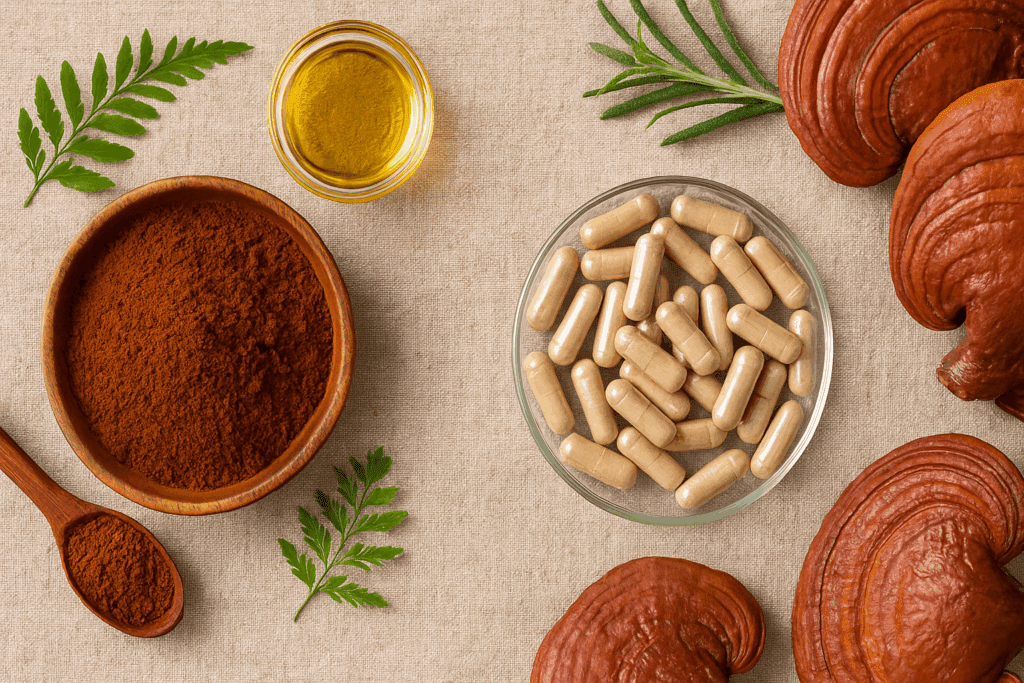
What Is Ganoderma? Distinguishing Reishi from Other Medicinal Mushrooms
What is Ganoderma, and how does it relate to reishi? Ganoderma is the genus to which reishi belongs, encompassing over 80 species of polypore mushrooms. Among them, Ganoderma lucidum is the most researched and widely used for medicinal purposes. It is this specific species that is commonly referred to as reishi in the West and Lingzhi in the East. However, not all Ganoderma species offer the same benefits, and knowing the distinction is critical for effective supplementation.
Ganoderma mushrooms are characterized by their glossy surface and tough, woody texture. They typically grow on decaying logs and tree stumps, thriving in humid climates. The bioactive compounds in Ganoderma, particularly in lucidum, are what make it a sought-after therapeutic agent. These include triterpenoids, which provide anti-inflammatory and hepatoprotective effects, and polysaccharides, which offer immune modulation and antioxidant properties.
Distinguishing Ganoderma lucidum from other medicinal mushrooms such as Cordyceps or Chaga is also important. While these mushrooms have their own set of benefits, none possess the unique dual-action profile of reishi that can support both restful sleep and mental clarity. Furthermore, not all products labeled as reishi contain true Ganoderma lucidum. Some may use closely related species or even mycelial biomass grown on grain, which lacks the full spectrum of compounds found in mature fruiting bodies. This makes product sourcing and labeling integrity crucial when evaluating reishi supplements.
In conclusion, understanding what Ganoderma is and how it differs from other mushrooms ensures that consumers receive the intended benefits. Reishi’s unique profile as part of the Ganoderma genus cements its place as a leader in both ancient herbal traditions and modern nootropic exploration.
Frequently Asked Questions About Reishi Mushroom
1. Does reishi make you sleepy if taken during the day?
While reishi has calming effects, it does not necessarily make you feel sleepy during the day. In fact, many users report feeling more balanced and focused when taking reishi earlier in the day. This is likely due to its adaptogenic qualities, which help the body resist stress and promote homeostasis without acting as a sedative. However, if you’re sensitive to calming herbs or are new to reishi, it may mildly relax you until your body adjusts. For those concerned about daytime drowsiness, consider adjusting dosage or combining reishi with more stimulating nootropics to create a balanced experience.
2. What is the best way to take reishi mushroom for daily use?
The best way to take reishi mushroom largely depends on your health goals and lifestyle. Reishi mushroom capsules offer convenience and consistent dosing, while red reishi mushroom powder and tea provide a more traditional and holistic experience. If you’re using reishi for stress or sleep, taking it in the evening with red reishi tea may enhance its calming properties. For cognitive support or immune enhancement, reishi powder in a morning smoothie is a great option. Whichever form you choose, consistency over time is key to experiencing the full spectrum of reishi mushroom benefits.
3. Can you eat reishi mushrooms raw or cooked like other mushrooms?
Reishi mushrooms are technically edible but are not suitable for culinary use due to their woody texture and bitter taste. Unlike shiitake or oyster mushrooms, reishi is extremely fibrous and is traditionally consumed as tea or extract. Cooking does not soften it in a meaningful way, and its beneficial compounds are best released through slow boiling or alcohol extraction. If you’re exploring how to use reishi mushroom powder, it’s better added to warm beverages or taken in capsule form. Eating it raw is ineffective and could lead to digestive discomfort without any significant health benefit.
4. Can you take too many mushroom supplements, including reishi?
Yes, it’s possible to take too many mushroom supplements, including reishi, especially when stacking multiple types like lion’s mane, cordyceps, and chaga. While reishi is generally considered safe, exceeding recommended doses can lead to side effects such as dry mouth, nausea, or even liver enzyme fluctuations in rare cases. It’s important to follow the suggested dosage on products and consult a healthcare provider when combining multiple supplements. Understanding how much reishi per day is appropriate for your body weight and needs ensures safer, more effective results. Moderation and expert guidance are essential to avoid overuse and unwanted interactions.
5. Do reishi mushrooms make you trip or cause psychedelic effects?
Reishi mushrooms do not make you trip, nor do they contain any psychoactive compounds like psilocybin. Despite their ancient use in spiritual practices, their effects are subtle and support emotional stability rather than altered states of consciousness. Lingzhi mushroom extract may calm the mind and reduce anxiety, but it does not cause hallucinations or sensory distortion. Reishi’s association with spiritual insight stems from its mood-balancing and grounding properties, not from any psychedelic activity. This makes reishi mushroom a safe, non-intoxicating choice for people seeking calm focus and emotional resilience.
6. Does Eastern medicine use reishi mushrooms for mental clarity?
Yes, Eastern medicine has long used reishi mushrooms to support both mental clarity and spiritual balance. In reishi Chinese medicine traditions, it is seen as a shen tonic that nourishes the heart and spirit, helping calm the mind and enhance perception. Reishi was traditionally used by scholars and monks to promote steady thought, reduce irritability, and enhance meditation. Today, red reishi powder and reishi mushroom capsules are popular among those integrating ancient principles with modern wellness routines. These practices reflect reishi’s long-standing reputation as a tool for balanced mental health, not just immune or liver support.
7. Does reishi mushroom interact with medications like blood thinners or antidepressants?
Yes, reishi mushroom can interact with certain medications, particularly blood thinners and drugs that affect the immune system. Its mild anticoagulant properties could amplify the effects of medications like warfarin, increasing the risk of bleeding. Additionally, reishi’s immune-modulating effects may interfere with immunosuppressive treatments, especially for transplant patients or autoimmune conditions. Antidepressants and other mood-related medications should also be monitored, as reishi may influence serotonin pathways. Always consult a healthcare provider before combining reishi with prescription medications to avoid potential risks and maximize reishi benefits safely.
8. How to use reishi mushroom powder without losing its potency?
When learning how to use reishi mushroom powder, proper preparation is key to preserving its bioactive compounds. Avoid exposing it to extremely high temperatures for prolonged periods, which can degrade polysaccharides and triterpenes. For best results, mix the powder into warm liquids like herbal teas or add it to post-cooking soups and smoothies. Some users create dual extracts at home by combining water and alcohol extractions to capture both water- and fat-soluble elements. Storing your reishi powder in an airtight container away from light and moisture also helps maintain potency and effectiveness over time.
9. What are the signs of reishi mushroom allergy and how rare is it?
A reishi mushroom allergy is rare but can manifest as skin rashes, itching, dizziness, or gastrointestinal upset shortly after consumption. People with known mushroom sensitivities should approach reishi supplementation cautiously and start with a very small dose. If symptoms persist or intensify, it’s advisable to discontinue use and consult an allergist. Most individuals tolerate reishi well, especially when consuming high-quality reishi mushroom capsules or standardized lingzhi mushroom extract. However, as with any supplement, allergic reactions are always a possibility and should be monitored carefully during initial use.
10. Does Reishi Make You Sleepy or Just More Relaxed?
The question “does reishi make you sleepy” is nuanced. For many users, reishi promotes a relaxed state that makes it easier to fall asleep, especially when used consistently over time. However, it does not work like a traditional sedative and does not induce immediate drowsiness. Instead, it subtly lowers cortisol, supports GABA function, and calms the nervous system—which are all factors that improve sleep quality. Whether reishi makes you sleepy depends on your personal biochemistry and the time of day you consume it. As a result, red reishi tea benefits may include sleep support for some, while others simply experience improved mood and stress resilience without drowsiness.
Conclusion: Unlocking the Complex Nature of Reishi Mushroom
So, does reishi make you sleepy or sharpen your mind? As we have seen, the answer lies not in binary extremes but in the unique ability of reishi to support both restful sleep and cognitive clarity depending on the user’s needs and physiological state. This dual benefit is rare among natural supplements, making reishi a standout in the realm of nootropic mushrooms and memory-enhancing therapies.
Reishi mushroom offers a wide range of benefits, from improved sleep and reduced anxiety to enhanced immunity and liver support. Understanding how to use reishi, whether through reishi powder, red reishi tea, or capsules, allows individuals to tailor its effects to their goals. While reishi is not a psychedelic and cannot make you trip, its subtle yet profound influence on mood and mental performance continues to intrigue scientists and health enthusiasts alike.
The best way to take reishi mushroom depends on your lifestyle and health status, and while it is generally safe, being aware of potential drug interactions and side effects ensures a responsible approach. Whether you are drawn to reishi for its calming effects, its role in cognitive enhancement, or its rich history in Chinese medicine, its potential to harmonize body and mind makes it a compelling choice in the modern health landscape.
Ultimately, reishi’s true power lies in its adaptability—a trait that mirrors the very systems it helps to support. It is neither strictly a sleep aid nor solely a cognitive enhancer; it is a holistic ally in navigating the complex demands of health, stress, and mental performance.
Further Reading :
Everything you need to know about reishi mushrooms
6 Benefits of Reishi Mushroom (Plus Side Effects and Dosage)
